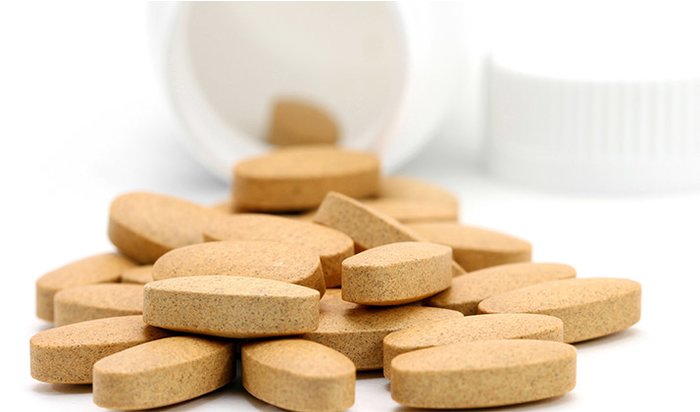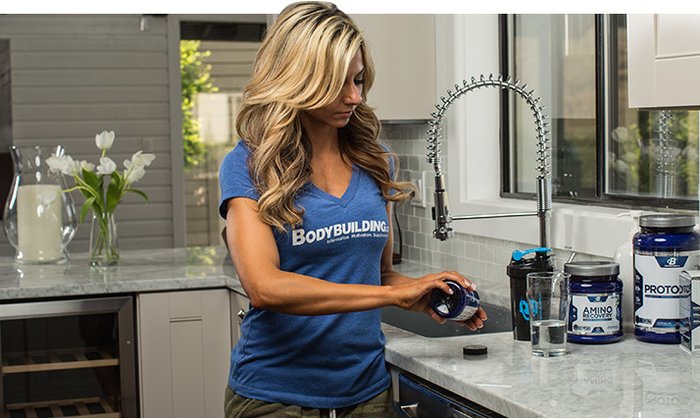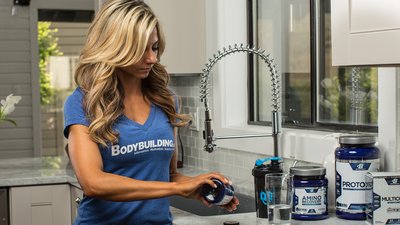The words "vegetarian diet" sounds healthy when you say them together, but we all know the diet itself is only as healthy as you choose to make it. Eating the full rainbow of vegetables and ample plant-based complete proteins is a vegetarian diet. So is eating nothing but ice cream and potato chips. Most of us know someone in the second camp, unfortunately.
But here's the thing: Even the most conscientious vegetarians can struggle get enough of certain key nutrients. If you're an athlete, you may need these and more, so also check out my article, "4 Simple Supplements for Vegetarian Athletes."
To stay ahead of the game and the vital vitamins and minerals you need as an herbivore, consider these four simple supplements. They're inexpensive, usually plant-based, and don't require complicated doses to be effective. Don't skip them!
1. Iron
This is the big one for many people. Iron is necessary for red-blood-cell formation, which is important for carrying oxygen to your working muscles. Iron also plays a role in energy production and immune-system function.

Iron is found in both animal- and plant-based foods; however, the more absorbable form is found in animal meats (heme iron). Nonheme iron, the type found in plant-based foods, isn't as readily useable by the body.
Iron is found in both animal- and plant-based foods; however, the more absorbable form is found in animal meats (heme iron). Nonheme iron, the type found in plant-based foods, isn't as readily useable by the body. As a result, vegetarians are more likely to be deficient in iron.
The iron found in plant-based foods is better absorbed when combined with vitamin C found in fruits and vegetables. Do not take iron with calcium (think dairy), because calcium impairs iron absorption.
Supplement Recommendation: 15-18 mg per day. Menstruating women experience more iron loss and should aim for the higher end of this range.
2. Zinc
Zinc is also found primarily in animal-based foods, but don't take that to mean that nonvegetarians are getting enough of it. On the contrary, much of the population is deficient in zinc, which is a shame, because zinc plays a role in, well, pretty much everything that happens in the body.
Well, not everything, but if I were to list all of its functions, it would seem that way. The roles it plays in both muscle building and immune function are reason enough to take a zinc supplement.
Supplement recommendation: 25-40 mg of zinc citrate or zinc sulfate per day.
3. Vitamin B-12
If your dietary approach includes dairy products or eggs, you're getting a good blast of B-12 with those foods. But if you're vegan, getting enough B-12 is probably a struggle. In fact, this is another nutrient that even meat-eaters often supplement because it's essential for a wide range of functions such as red-blood-cell production, neurological functioning, and overall energy level.

Dairy and animal meats are an excellent source of b-12\. If your diet is lacking these, however, you'll benefit from supplementation of this essential nutrient.
Supplement Recommendation: 1 mg (1,000 mcg) per day
4. Calcium
This is one you probably know you need. So, are you actually getting enough of it on a regular basis? Calcium is a nutrient our bodies require for bone and tooth health, nerve transmission, and muscle and cardiovascular health. Although it's found in leafy greens, a calcium supplement can serve as a safety net to make sure you're hitting your daily minimum requirements.
Supplement Recommendation: 1,000-1,200 mg per day. Calcium supplements are best absorbed with Vitamin-D and a meal.
Another avenue to take is supplementing with a daily multivitamin. Just be sure it has iron, zinc, B-12, and calcium!

